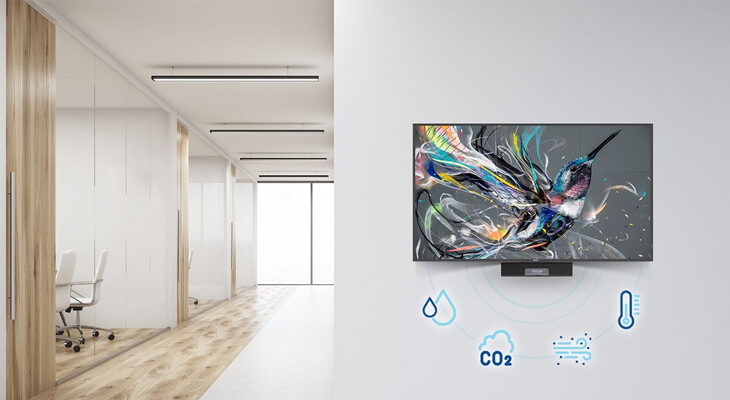The quality of air we breathe in has a direct impact on our health, well-being and functioning. Usually, the autumn and winter seasons are times when the air pollution and smog levels increase dramatically. Is it possible to minimize your exposure to these harmful pollutants? How to effectively monitor air quality and are air quality sensors really worth your while?
Why do we have smog and other air pollutants?
If you’re wondering why we need to deal with smog and polluted air, just think about people who heat their homes with low quality, harmful materials like coal or even rubbish. Moreover, big car and truck traffic also translates into extra pollution Outdated plants don’t help to change the situation either.
The word smog combines two other nouns: fog and smoke. It refers to pollutants including nitrogen oxides, sulfur dioxide and carbon black that are created as a result of human activities.
Air quality sensors — what are the benefits?
Using a reliable air quality sensor gives you an unprecedented opportunity to monitor the most important air pollution markers and particles like PM 2.5, PM 10, O3, NO2, SO2 and CO gases.
This puts you into the picture and lets you make an informed decision about your activities planned for a given day. Sensors evaluate air quality based on the current weather conditions, temperature, or humidity levels. All this allows us to obtain a reliable piece of information.
What are the risks of breathing polluted air?
Regular exposure to polluted air can have a very negative impact on our health and well-being. Apart from mild conditions like persistent cough or lack of motivation, it may also cause:
- asthma,
- various types of cancer,
- heart problems,
- respiratory and circulatory conditions,
- strokes,
- pulmonary diseases.
As you can see, the air we breathe in has an impact on various aspects of our life. Therefore, it’s worth monitoring the parameters to ensure that you stay home when the concentration of pollutants is high and when you don’t need to go out.
Which air quality sensor to choose?
When looking for an air quality sensor, make sure that it monitors all the parameters essential to calculate and assess the amount of pollutants such as PM 2.5, PM 10, O3, NO2, SO2 and CO present in the air. Choose a device that presents accurate data and takes into account variables like weather conditions, temperature, season, or humidity. Health is the ultimate value, it’s not worth taking your chances. Make informed decisions and monitor air to ensure satisfactory quality of your life.





